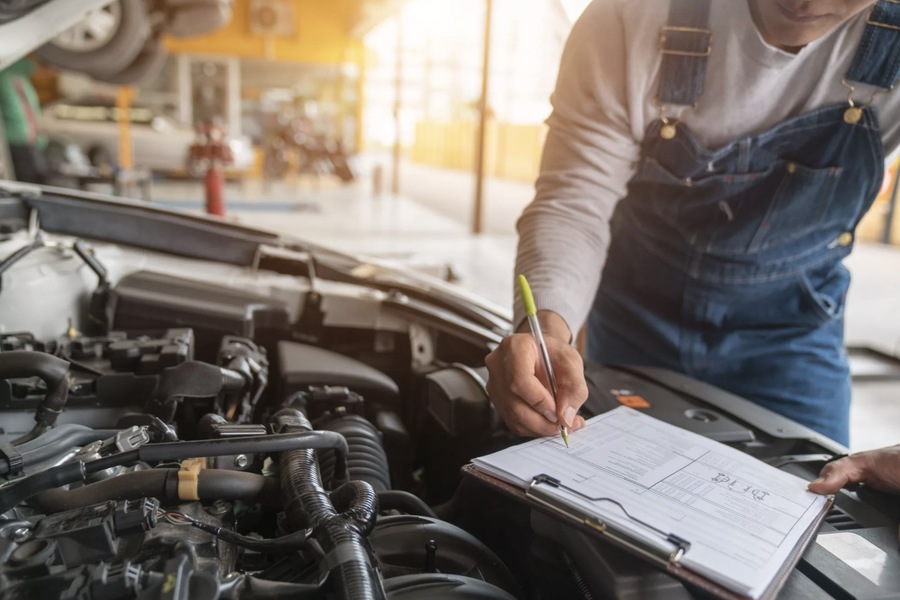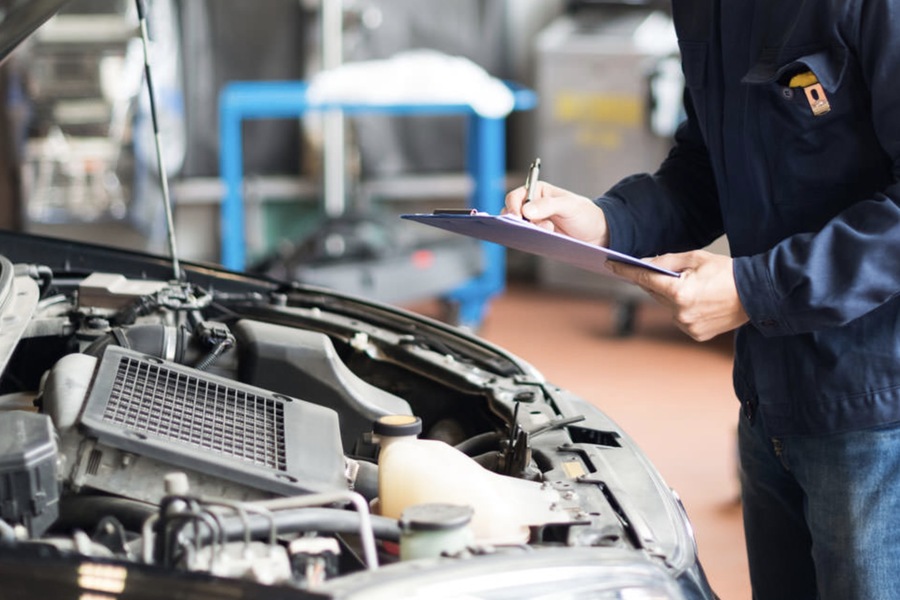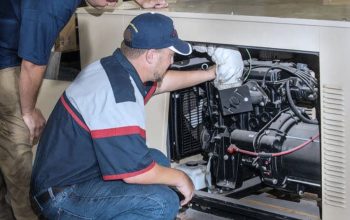A vehicle technical inspection is a comprehensive process designed to evaluate the condition of a vehicle to ensure it is safe for operation on public roads. This mandatory procedure in the UAE plays a crucial role in maintaining road safety, environmental standards, and the overall reliability of vehicles. Conducted annually, it is a prerequisite for renewing a vehicle’s registration. For added convenience, Zofeur offers a service where a driver can be hired through their app to take your car for inspection and return it after completion.
Components Checked During Technical Inspection
During a technical inspection, a series of checks are performed on various components of the vehicle using specialized diagnostic equipment:
Braking System
– Components Inspected: Brake pads, discs, calipers, brake lines, and fluid levels.
– Why It’s Important: The braking system is essential for stopping the vehicle safely and effectively. Faulty brakes can lead to accidents and are one of the primary causes of road incidents.
Steering
– Components Inspected: Steering wheel, column, rack and pinion, power steering system, and linkages.
– Why It’s Important: Steering controls the direction of the vehicle. Any defects can lead to loss of control, particularly at high speeds or during emergency maneuvers.
External Lighting Fixtures
– Components Inspected: Headlights, taillights, brake lights, turn signals, fog lights, and hazard lights.
– Why It’s Important: Proper lighting ensures visibility during night driving and adverse weather conditions. It also helps communicate intentions to other drivers, such as turning or braking.
Windshield Washers and Wipers
– Components Inspected: Windshield wiper blades, washer fluid levels, and wiper motor.
– Why It’s Important: Clear visibility is crucial for safe driving. Effective wipers and washers ensure the windshield remains clean, improving visibility.
Tires and Wheels
– Components Inspected: Tire tread depth, pressure, condition (cracks, bulges), and wheel alignment.
– Why It’s Important: Tires are the only contact point between the vehicle and the road. Properly maintained tires ensure better grip, handling, and braking performance.
Engine
– Components Inspected: Engine performance, leaks, noise levels, and emissions.
– Why It’s Important: The engine is the heart of the vehicle. Ensuring it runs efficiently and within emission standards is crucial for performance and environmental compliance.
Diagnostic Card
Upon completing the inspection, the vehicle owner is issued a diagnostic card. This card, available in electronic or paper form, details the results of the inspection, indicating whether the vehicle meets the mandatory safety requirements. If the vehicle passes, it is deemed roadworthy. If it fails, the card will list the necessary repairs required before re-inspection.

Accredited Inspection Operators
Technical inspections can only be performed by accredited operators, ensuring that all checks are conducted to a high standard. These operators can be companies or individual entrepreneurs with special accreditation, guaranteeing the reliability and accuracy of the inspection process.
Importance of Good Technical Condition
Maintaining a vehicle in good technical condition is essential for several reasons:
Safety
– Details: A mechanically sound vehicle minimizes the risk of accidents caused by failures. This protects not only the vehicle occupants but also other road users.
Economic Benefit
– Details: Regular maintenance helps in early detection of issues, preventing costly repairs and extending the life of vehicle components.
Car Durability
– Details: Routine servicing, including oil changes, filter replacements, and system checks, ensures that the vehicle remains in optimal condition, thereby extending its lifespan.
Preserving Value
– Details: A well-maintained vehicle retains a higher resale value, as prospective buyers are assured of its reliability and performance.
Driving Pleasure
– Details: A vehicle in good condition offers a smoother, more comfortable driving experience, free from unexpected breakdowns or performance issues.
Environmental Benefits
– Details: Regular maintenance reduces emissions of harmful substances, contributing to a cleaner environment and compliance with emission standards.
Technical Inspection Frequency in Different Countries
The frequency and requirements for vehicle inspections vary by country, reflecting different regulatory approaches to road safety and environmental protection:
– UK: Annual inspections are required for cars over three years old.
– France: Vehicles over four years old must be inspected every two years.
– Spain: Similar to France, but vehicles over ten years old require annual inspections.
– Germany: New vehicles are exempt for the first three years, followed by biennial inspections.
– Italy: Vehicles under 3.5 tons are inspected four years after production, then every two years.
– USA: Inspection requirements vary by state; some states have no inspections, while others have varying standards, from VIN checks to comprehensive safety and emissions tests.
– Japan: Vehicles undergo mandatory inspections every two years after the initial three-year period.
Technical Inspection in the UAE
In the UAE, technical inspections are mandatory and must be completed annually to renew vehicle registration. Here are the specific details of the inspection process in the UAE:
– Exception: Vehicles over 30 years old are exempt from inspection.
– Sticker for Rear Number Plate: A sticker indicating the next inspection date is placed on the rear number plate. Driving without a valid inspection can result in hefty fines and vehicle impoundment.
– Strict Verification Criteria: Even minor issues, such as a torn boot or a non-functioning light bulb, can result in inspection failure.
– Vehicle Mileage Tracking: Discrepancies in mileage readings can lead to criminal charges for data falsification.
– Procedure at RTA Centers: Inspections can be carried out at Roads and Transport Authority (RTA) centers in Dubai.

Inspection Procedure
- Visit the Nearest RTA Office: Go to the nearest RTA center with your vehicle documents.
- Get a Ticket: Present your documents at the window to get a ticket in line.
- Hand Over the Keys: Give the keys to the inspection staff and wait in the office. Owners are not allowed to be present during the inspection.
- Receive Results: Pay for the service and provide your contact details to receive the test results via phone or email.
Convenient Solutions
For added convenience, services like Zofeur in Dubai offer a solution where a driver can be hired through their app to take your car for inspection and return it after completion for a fixed fee of AED 69. This service allows vehicle owners to manage inspections without leaving their homes or workplaces.
Conclusion
The annual technical inspection is a vital process that ensures vehicles on UAE roads are safe, reliable, and compliant with regulatory standards. By maintaining your vehicle in good technical condition, you not only enhance safety and performance but also contribute to environmental protection and economic savings. Ensuring that your car passes the inspection each year is essential for legal compliance and peace of mind.

Hockey fan, ramen eater, audiophile, Eames fan and typography affectionado. Working at the intersection of simplicity and sustainability to craft experiences both online and in real life. Let’s chat.



